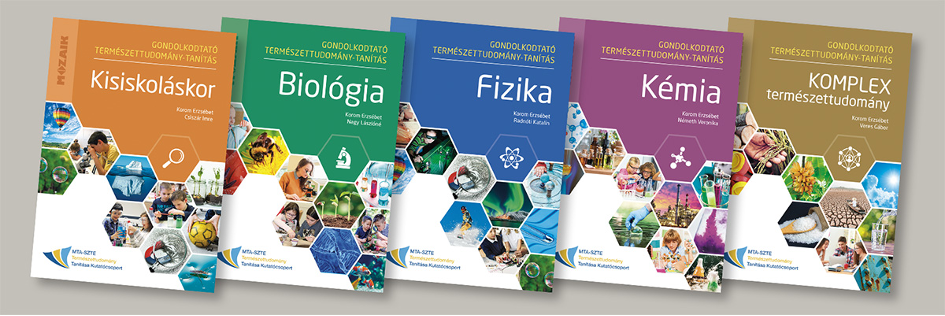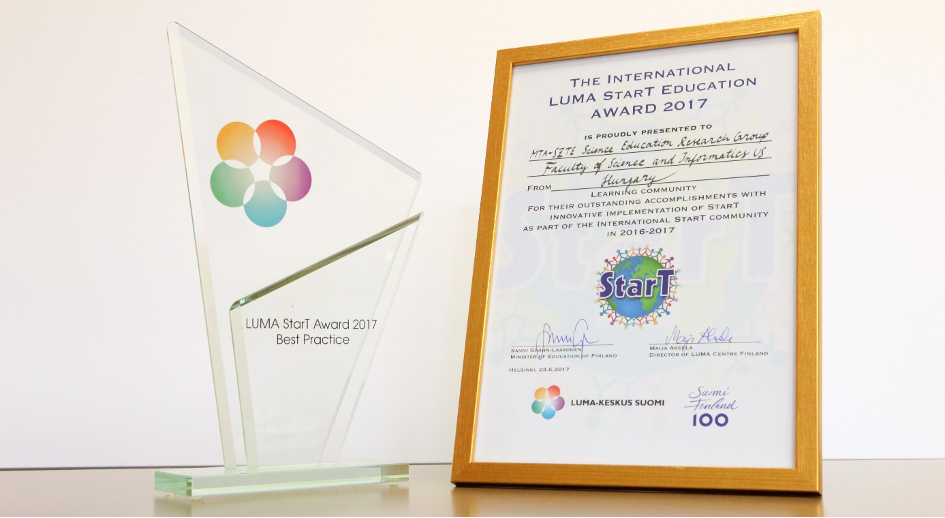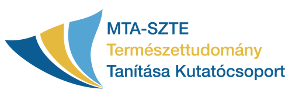Results
Results of the research programme
Theoretical background
Our theoretical background research involved a review of the literature on science education with special reference to the instruction and acquisition of scientific literacy and reasoning. The individual research groups also collected further background information relating to given age cohorts and school subjects or content areas. The results were utilized in the practical implementation of the theoretical framework of the fostering of reasoning skills embedded in subject content and in the designing of pedagogical experiments, and they were published in the volumes on methodology and in theoretical publications. We further analysed the frameworks of international surveys, science curricula and standards and textbooks in an effort to identify key areas of reasoning instruction that need to receive greater emphasis in the classroom. Based on the results of our analyses, we then focused our attention on the fostering of analogical, combinatorial and probabilistic reasoning, critical and systems thinking and inquiry skills. We studied and employed methods allowing the fostering of thinking and reasoning skills by involving students in active learning. Special attention was paid to inquiry-based learning, the project method, educational games, problem-based learning, the debate method and out-of-school learning.
Assessment tools
New measurement instruments were developed and existing ones adapted for the assessment of scientific reasoning and inquiry skills. Online versions of tests were constructed for the study of inquiry skills, which were trialled with primary and secondary school students and pre-service teachers. We adapted the online versions of Lawson’s Scientific Reasoning test and Wenning’s Nature of Science Literacy Test (NOSLiT) known from the international literature and adapted questionnaires designed to assess epistemological beliefs. A measurement instrument was developed to examine the development of combinatorial reasoning, and data analysis methods were devised for the investigation of student strategies in solving enumerative combinatorial problems. Tests (physics content, biology content, chemistry content, analogical reasoning, and identification and control of variables) were developed for the pre-test and post-test phases of our education science experiments. Most of the data collection took place online through the eDia system in collaboration with the Center for Research on Learning and Instruction at the University of Szeged.
Trials of education programmes
A broad range of the exercises and lesson plans we designed for the purpose of fostering reasoning skills have been trialled in a classroom environment and our experiences are detailed in a series of case studies. Experiments with a pre-test and post-test, experimental group and control group design were conducted for three school subjects in order to assess the impact of our programmes. In physics, the programme focused on inquiry skills for 7th grade students in the subject area of Thermodynamics. In biology, analogical reasoning was the skill to be fostered in 6th grade embedded in the topic of The human body and health. Finally, in 10th grade chemistry, the programme was about inquiry skills once again, this time focusing on the identification and control of variables in the topic area of Carbonic acids and esters. The results of the experiments indicate that our programmes are suitable for the fostering of students’ reasoning skills and also facilitate the mastery of the subject matter.
Teacher handbooks
The exercises and project plans developed by the working groups of the research group and piloted in or beyond the classroom were published in a series of volumes of teaching methodology entitled Science education with the focus on reasoning skills by Mozaik publishing house. The series comprises five volumes – Lower Primary School, Physics, Chemistry, Biology and Complex Science – which cover the period from the beginning of primary school to 12th grade and conform to a uniform structure. The introductory chapters and the theoretical background section introducing each other chapter discuss the system of scientific reasoning, its development and instruction based on the latest international and Hungarian literature. The exercises and lesson plans reflect the concerns of modern science education and place special emphasis on student activities, the understanding and applications of knowledge and the enhancement of reasoning and inquiry skills. The descriptions of the exercises and lesson plans and the methodological recommendations incorporate the experiences of the pilot studies and experimental programmes. The detailed descriptions provide guidance for teachers and educators in using the exercises and also constitute models for the development of new exercises and ideas. The volumes can be used in pre-service and in-service teacher training. The complete series may be downloaded from the web pages of the research group.

Database of chemical compounds and experiments
The Database of chemical compounds and experiments developed by the Chemistry working group assists the design and implementation of teacher and student experiments. Registered users may search the database using a variety of criteria: In the module Materials, for instance, a user may search by product, ingredient or distributor while in the module Experiments, by experiment, class of materials, concept, phenomenon, tool, application or the reasoning skill practiced in the experiment. The database, which currently comprises 100 experiments, 199 materials and 228 ingredients, encourages an approach that has been little used in chemistry teaching. For instance, it shows that chemical concepts and phenomena may be demonstrated using compounds that are part of our everyday lives. The database may be used to supplement the subject matter and for inquiry learning or problem-based learning.

The BioScientist digital educational application
The Biology working group of the research group developed the BioScientist digital education app with the objective to foster the inquiry skills of experimental design, the identification and control of variables, data interpretation and drawing of conclusions through a game-like inquiry activity with biology subject content. The application relies on the method of game-based inquiry learning where the educational exercises are embedded in a story and are complemented by game elements. Its subject content follows the biology curriculum for 8th grade students: the skin and the muscular system, the digestive system, the circulatory system and perception.
Projects and good practices
As a part of our instruction programmes, we also developed out-of-school activities closely linked to everyday life and allowing the practising of problem solving and inquiry skills. We successfully entered our projects in the StarT programme and contest of the Finnish LUMA Centre in 2017, 2018 and 2020 and became participants in an international instruction method knowledge share network. We have implemented a total of 10 projects and organised 3 science fairs/workshops. Each was documented in a short film and diary in Hungarian and in English, which are available on the web pages of the research group. Our project The mathematics of the chestnut was among the 10 best in the StartT contest of 2017, and our workshop entitled Teaching science subjects on new paths in 2018. In the category of good practices in 2017, our programme entitled Science Fair – Projects under the magnifying glass won the International LUMA StarT 2017 Education Award.

Publications
Our results have been presented to audiences at international (EARLI 2017, 2019; EARLI JURE 2017; ESERA 2017, 2019, LUMAT Symposium 2020) and Hungarian conferences (ONK 2016–2020, PÉK 2017, 2018), professional events and workshops, international and Hungarian publications and have also been incorporated into teacher training and education science PhD programmes.
